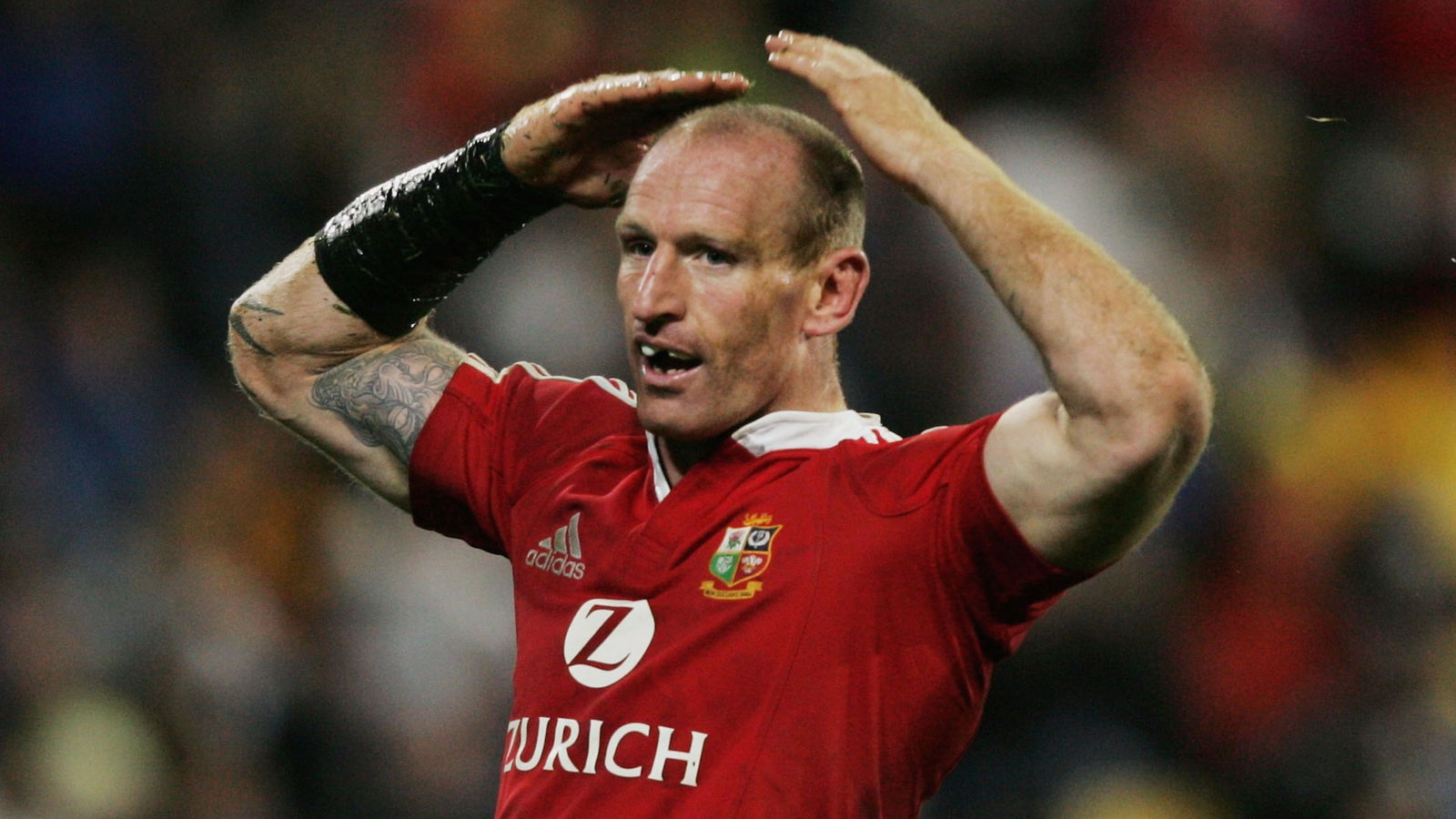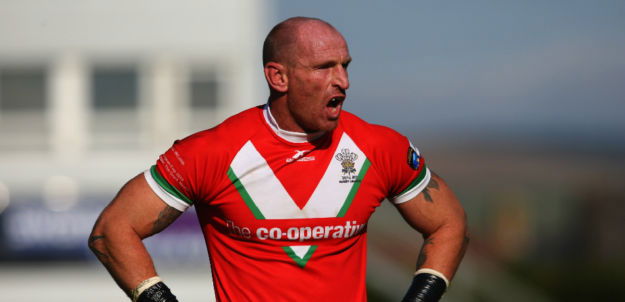
Dual-code rugby legend Gareth Thomas has revealed he is HIV positive.
The 45-year-old played for Crusaders in 2010 and 2011 following a 16-year career in rugby union, where he played 100 games for the Wales national team.
In 2009 he became the first openly gay professional rugby player and received much praise for his courage in coming out.
His aim then was to break the stigma regarding homosexuality in sport and encourage younger people to have the confidence to embrace who they are.
Now, he’s hoping to break another stigma – HIV in sport.
In an exclusive interview with The Mirror, Thomas has revealed how he is HIV positive and has kept it a secret for years.
He told the newspaper how he feared the disease would end his life – and that he even considered ending it himself by driving off a cliff.
“I’ve felt shame and keeping such a big secret has taken its toll,” said Thomas.
— Gareth Thomas (@gareththomas14) September 14, 2019
“I had a fear people would judge me and treat me like a leper because of a lack of knowledge. I was in a dark place, feeling suicidal. I thought about driving off a cliff.
“To me, wanting to die was just a natural thought and felt like the easier way out, but you have to confront things.
“And having a strong support system and the personal strength and experience of overcoming those emotions got me through it.
“Many people live in fear and shame of having HIV, but I refuse to be one of them now. We need to break the stigma once and for all.
“I’m speaking out because I want to help others and make a difference.”
The former Welsh Rugby captain hasn’t revealed the date of his diagnosis but did describe the profound moment he was given the news by doctors: “I’d had the tests every now and again and they’d always come back okay. I didn’t feel ill and I thought everything was going to be fine.
“The woman who did the test took blood as usual, then I went out to my car and waited for about an hour before going back in to get my results.

Gareth Thomas captained Wales, as well as representing the GB Lions (above).
“When I went back in, I sat down on a chair next to a doctor’s bench. She told me in a quite matter of fact way I had tested HIV positive.
“I remember she told me, ‘You need to go to the hospital right now and start the process straight away, because the doctors will be able to help you better understand your diagnosis. Don’t wait for tomorrow’.
“I drove straight to Cardiff Royal Infirmary, but I was still in such a traumatised state. In tears, I rang a good friend on the way and blurted it out.
“I told him, ‘I’ve got HIV – I’m going to die’. He was trying to comfort and reassure me and telling me to go and speak to the doctors, but I’d already made my mind up that my life was over.

Thomas also earned four caps for Wales Rugby League.
“I’d never known anyone with HIV or AIDS. And everything I’d heard about HIV was death and frailness.
“Like most people I lived with the belief that HIV is terminal. I tried to keep going as normal in the days afterwards, but felt completely numb.
“I had to tell people I’d had sex with since my last test that I was HIV positive.
“Your history suddenly becomes very relevant and you have a duty of care to tell them. I did it over the phone. That was hard.”
Following his admission this past weekend, Thomas has received much support from around the globe, including ex-teammates and even royalty.
Prince William tweeted his support, by saying: ‘Courageous as ever – legend on the pitch and legend off it. You have our support Gareth. W’.
Courageous as ever – legend on the pitch and legend off it. You have our support Gareth. W https://t.co/WXGof2N3j8
— Kensington Palace (@KensingtonRoyal) September 15, 2019
In Britain, there are an estimated 101,600 people who are HIV positive.
However, the topic of HIV is still widely considered a taboo, and that’s the reason why Thomas was reluctant to reveal his illness for so long.
“I thought that if people knew about me being HIV positive they wouldn’t want to breathe the same air as me, they wouldn’t want to drink from the same cup as me and if I walked into a coffee shop everyone would just walk out because they’d be so scared of being infected by me.
“I think if you went out on the street right now and told 10 people you have HIV, 50 per cent of them would be scared you’re going to give it to them.
“I don’t blame people for thinking it, because I did too, but we need to change that by talking about it and educating people.”
One of the bravest people i know! Love ya pal and see you on the beach! Let’s smash this!! ?? @IRONMAN_Wales https://t.co/qPbQEixECs
— Shane Williams (@ShaneWilliams11) September 15, 2019
HIV targets and alters the immune system, increasing the risk and impact of other infections and diseases.
Without treatment, the lifelong infection – which is spread through sexual contact and blood – can progress to AIDS. No cure is currently available for HIV or AIDS.
Modern advances mean HIV patients in countries with good access to healthcare very rarely develop AIDS once they get treatment.
Life expectancy of people with the virus is approaching that of a person who tests negative, as long as they adhere to a combination of ongoing medications called anti-retroviral therapy. Gareth takes one tablet containing four medications each day.
His condition is now under control to the point it is considered “undetectable” and can’t be passed on.
The moment Gareth Thomas broke down in tears after seeing his husband cheering him on during the gruelling Ironman race pic.twitter.com/LLFBm4ZKhF
— BBC Wales News (@BBCWalesNews) September 16, 2019
He receives regular counselling and has blood tests at Cardiff Royal Infirmary every six months.
However, he used to try and hide the fact he was receiving treatment: “I’ve always gone through a side door before opening hours because I thought if people spotted me they’d put two and two together and work out my secret.
“It has all been shrouded in a sense of shame and from me entering the clinic to leaving always feels like a blur.
“I still don’t feel I could walk in through the main entrance even now, although maybe that’ll change.
“HIV is a scary subject. There’s a lot of fear and ignorance. But the fear is something people learned in the 1980s from the tombstone adverts on TV. In 2019 there is nothing to be afraid of.
“People need to know that due to modern medicine HIV is not life-threatening any more and because of the medication I take, there’s no way it can be passed on.
“It’s very controllable. In terms of effect on the body, diabetes is considered worse to have than HIV by doctors. I’m not dying.”

























